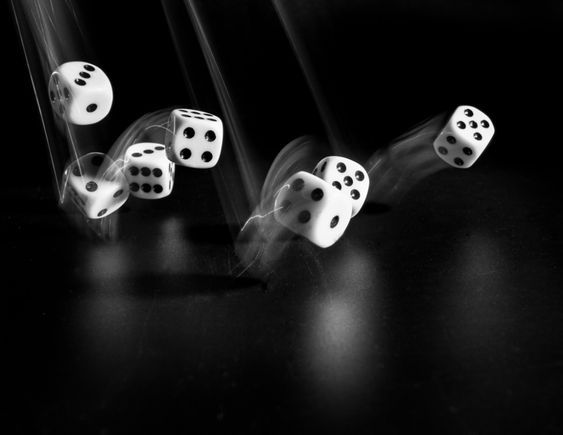Popular Gambling Superstitions and Rituals in Gauteng

Gambling superstitions are beliefs or behaviours gamblers follow in the hope of improving their luck. These may include wearing certain colours, avoiding specific numbers, or performing rituals before placing a bet.

These practices are not based on mathematics or probability. Instead, they offer gamblers a sense of control over an unpredictable activity.
In many cases, they’re tied to memory and emotion. If someone won big while wearing a red shirt, they may begin to believe the shirt is lucky.
According to the National Responsible Gambling Programme, beliefs in luck and ritual are widespread among South African gamblers, particularly those who play frequently or in social settings like casinos.
ALSO READ: A Beginner’s Guide to Responsible Gambling
The Psychological Impact of Gambling Rituals and Superstitions on Players
Gambling rituals play an important role in managing stress and boosting confidence. Psychologists explain that these routines provide a sense of control in uncertain situations.
Although rituals don’t influence the actual odds, they can create a placebo effect. This helps players stay focused and calm, which is important when making quick decisions during betting.
Research on superstition and ritual behaviour, such as that summarised by Psychology Today, shows that repetitive actions reduce anxiety by giving people a feeling of control over unpredictable events. This explains why gamblers stick to rituals; they help maintain mental balance even if the outcome remains uncertain.
Common Gambling Superstitions in Gauteng: Beliefs and Lucky Practices
In Gauteng, several superstitions are widely practiced. These vary by background, personal experience, and cultural influence, but many players share similar habits.
Wearing Lucky Colours and Clothing to Attract Good Fortune
Red is believed to bring energy and good fortune. This belief is shared across cultures and has made its way into South Africa’s gambling scene. Some players wear red items, especially during high-stakes games.
Others have lucky shirts, hats, or accessories they only wear when they gamble.
Avoiding Unlucky Numbers: The Role of 13 and 7 in Gambling Superstitions
The number 13 is associated with bad luck across many cultures. In Gauteng casinos, it’s not unusual to find no Table 13 or Floor 13 in hotels. In contrast, many view the number 7 as lucky and will place bets based on that number.
Carrying Lucky Charms and Talismans for Protection and Success
Gamblers often carry personal items they consider lucky. These include coins, dice keychains, beaded bracelets, or religious symbols. In some cases, they may also carry herbs like imphepho, used in traditional spiritual practices for protection and guidance.
These charms are believed to ward off negative energy and attract good outcomes.
Performing Pre-Bet Rituals: How Gamblers Prepare Mentally for the Game
Many players repeat the same actions before placing a bet. These rituals may include:
- Blowing on dice or cards
- Tapping a machine a specific number of times
- Saying a lucky number under their breath
- Knocking on the table for luck
These gambling rituals bring comfort and focus before the game begins.
The Power of Positive Thinking: Avoiding Negative Language in Gambling
Some players believe that speaking about losing, bad luck, or failure before or during a game can bring bad fortune. Instead, they stay positive, focusing only on winning or staying neutral in conversation.
This belief is connected to the idea that words carry power and can influence outcomes.
Cultural Influences on Gambling Superstitions and Rituals in Gauteng
Gauteng is home to a diverse mix of cultures and belief systems. These shape the way people approach gambling and the rituals they follow.
Some players pray or meditate before betting. Others visit traditional healers for spiritual protection or guidance. Rituals like burning herbs or anointing hands before games are common in some communities.
These practices are not only about luck; they also reflect deep-rooted cultural values, identity, and respect for tradition.
Digital Gambling Rituals and Online Superstitions in South Africa
With the rise of online platforms like Hollywoodbets and Betway, gambling habits have gone digital—and so have the superstitions.
Online players follow different types of gambling rituals:
- Betting only on specific days of the week
- Using the same username or device
- Logging in at a lucky time
- Refreshing the page before placing a bet
These new rituals serve the same purpose: to create routine and confidence in a digital space where physical habits may not apply.
Despite the shift online, belief in luck and ritual remains just as strong.
Responsible Gambling: Balancing Belief with Wise Betting Decisions
While gambling superstitions and gambling rituals can enhance the player’s experience, they should never replace sound judgement.
Over-reliance on superstition may lead to poor decisions or risky behaviour. It’s important to understand that all gambling outcomes are based on chance and not influenced by rituals or beliefs.
The South African Responsible Gambling Foundation encourages players to gamble for entertainment, not income. Recognising the limits of superstition is part of staying in control.
READ MORE: Responsible Gambling Tips Every Player Should Know
The Lasting Impact of Gambling Superstitions and Rituals in Gauteng
In Gauteng, gambling superstitions and gambling rituals are a powerful part of the gambling experience. They reflect a blend of culture, belief, memory, and psychology.
Whether it’s wearing red, carrying a lucky charm, or tapping the table before placing a bet, these rituals give players a sense of connection to themselves, their heritage, and the game.
Even as gambling continues to evolve with technology, one thing remains the same: the human desire for meaning in moments of chance. And in Gauteng, that meaning often begins with belief.

